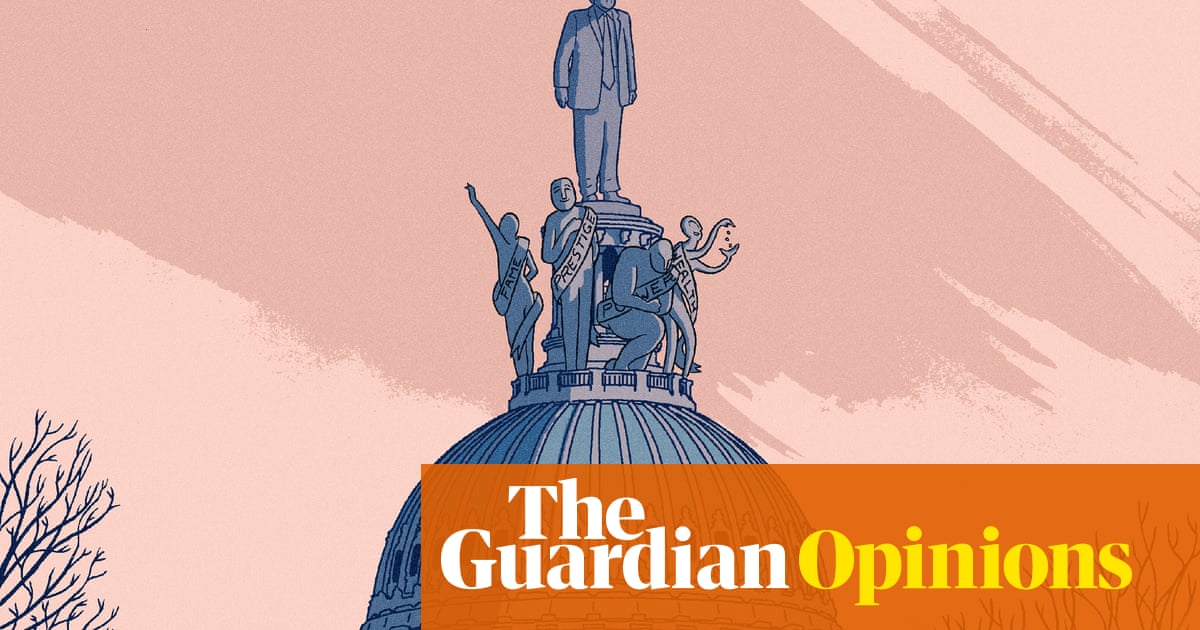US culture is an incubator of ‘extrinsic values’. Nobody embodies them like the Republican frontrunner
Many explanations are proposed for the continued rise of Donald Trump, and the steadfastness of his support, even as the outrages and criminal charges pile up. Some of these explanations are powerful. But there is one I have seen mentioned nowhere, which could, I believe, be the most important: Trump is king of the extrinsics.
Some psychologists believe our values tend to cluster around certain poles, described as “intrinsic” and “extrinsic”. People with a strong set of intrinsic values are inclined towards empathy, intimacy and self-acceptance. They tend to be open to challenge and change, interested in universal rights and equality, and protective of other people and the living world.
People at the extrinsic end of the spectrum are more attracted to prestige, status, image, fame, power and wealth. They are strongly motivated by the prospect of individual reward and praise. They are more likely to objectify and exploit other people, to behave rudely and aggressively and to dismiss social and environmental impacts. They have little interest in cooperation or community. People with a strong set of extrinsic values are more likely to suffer from frustration, dissatisfaction, stress, anxiety, anger and compulsive behaviour.



The land doesn’t vote thing is about disproportionate representation, that somehow your opinions matter more because you’re from a state with less people, not that “we” dont consider you worthy of having a say. It’s just frustrating that tens of millions (costal state) = hundreds of thousands/single digit millions (think: Dakotas) in terms of representation and therefore control of the Senate/Presidency.
That is an issue with our current system, and you’re correct in that it’s not fair to people in more densely populated states. The flip side however is that without this disproportionate representation, people in more rural areas might not see any of their issues addressed as politicians no longer need their votes to win. There is no perfect solution, certainly not with our current FPTP system. My objection to the argument is that it’s often used as a thought terminating cliche to justify ignoring “flyover” voters.